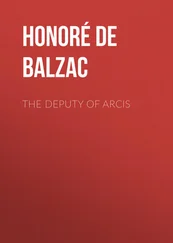Nevertheless, Charles was a true child of Paris, taught by the customs of society and by Annette herself to calculate everything; already an old man under the mask of youth. He had gone through the frightful education of social life, of that world where in one evening more crimes are committed in thought and speech than justice ever punishes at the assizes; where jests and clever sayings assassinate the noblest ideas; where no one is counted strong unless his mind sees clear: and to see clear in that world is to believe in nothing, neither in feelings, nor in men, nor even in events,—for events are falsified. There, to “see clear” we must weigh a friend’s purse daily, learn how to keep ourselves adroitly on the top of the wave, cautiously admire nothing, neither works of art nor glorious actions, and remember that self-interest is the mainspring of all things here below. After committing many follies, the great lady—the beautiful Annette—compelled Charles to think seriously; with her perfumed hand among his curls, she talked to him of his future position; as she rearranged his locks, she taught him lessons of worldly prudence; she made him effeminate and materialized him,—a double corruption, but a delicate and elegant corruption, in the best taste.
“You are very foolish, Charles,” she would say to him. “I shall have a great deal of trouble in teaching you to understand the world. You behaved extremely ill to Monsieur des Lupeaulx. I know very well he is not an honorable man; but wait till he is no longer in power, then you may despise him as much as you like. Do you know what Madame Campan used to tell us?—‘My dears, as long as a man is a minister, adore him; when he falls, help to drag him in the gutter. Powerful, he is a sort of god; fallen, he is lower than Marat in the sewer, because he is living, and Marat is dead. Life is a series of combinations, and you must study them and understand them if you want to keep yourselves always in good position.’”
Charles was too much a man of the world, his parents had made him too happy, he had received too much adulation in society, to be possessed of noble sentiments. The grain of gold dropped by his mother into his heart was beaten thin in the smithy of Parisian society; he had spread it superficially, and it was worn away by the friction of life. Charles was only twenty-one years old. At that age the freshness of youth seems inseparable from candor and sincerity of soul. The voice, the glance, the face itself, seem in harmony with the feelings; and thus it happens that the sternest judge, the most sceptical lawyer, the least complying of usurers, always hesitate to admit decrepitude of heart or the corruption of worldly calculation while the eyes are still bathed in purity and no wrinkles seam the brow. Charles, so far, had had no occasion to apply the maxims of Parisian morality; up to this time he was still endowed with the beauty of inexperience. And yet, unknown to himself, he had been inoculated with selfishness. The germs of Parisian political economy, latent in his heart, would assuredly burst forth, sooner or later, whenever the careless spectator became an actor in the drama of real life.
Nearly all young girls succumb to the tender promises such an outward appearance seems to offer: even if Eugenie had been as prudent and observing as provincial girls are often found to be, she was not likely to distrust her cousin when his manners, words, and actions were still in unison with the aspirations of a youthful heart. A mere chance—a fatal chance—threw in her way the last effusions of real feeling which stirred the young man’s soul; she heard as it were the last breathings of his conscience. She laid down the letter—to her so full of love—and began smilingly to watch her sleeping cousin; the fresh illusions of life were still, for her at least, upon his face; she vowed to herself to love him always. Then she cast her eyes on the other letter, without attaching much importance to this second indiscretion; and though she read it, it was only to obtain new proofs of the noble qualities which, like all women, she attributed to the man her heart had chosen.
My dear Alphonse,—When you receive this letter I shall be without
friends; but let me assure you that while I doubt the friendship
of the world, I have never doubted yours. I beg you therefore to
settle all my affairs, and I trust to you to get as much as you
can out of my possessions. By this time you know my situation. I
have nothing left, and I intend to go at once to the Indies. I
have just written to all the people to whom I think I owe money,
and you will find enclosed a list of their names, as correct as I
can make it from memory. My books, my furniture, my pictures, my
horses, etc., ought, I think, to pay my debts. I do not wish to
keep anything, except, perhaps, a few baubles which might serve as
the beginning of an outfit for my enterprise. My dear Alphonse, I
will send you a proper power of attorney under which you can make
these sales. Send me all my weapons. Keep Briton for yourself;
nobody would pay the value of that noble beast, and I would rather
give him to you—like a mourning-ring bequeathed by a dying man to
his executor. Farry, Breilmann, & Co. built me a very comfortable
travelling-carriage, which they have not yet delivered; persuade
them to keep it and not ask for any payment on it. If they refuse,
do what you can in the matter, and avoid everything that might
seem dishonorable in me under my present circumstances. I owe the
British Islander six louis, which I lost at cards; don’t fail to
pay him—
“Dear cousin!” whispered Eugenie, throwing down the letter and running softly back to her room, carrying one of the lighted candles. A thrill of pleasure passed over her as she opened the drawer of an old oak cabinet, a fine specimen of the period called the Renaissance, on which could still be seen, partly effaced, the famous royal salamander. She took from the drawer a large purse of red velvet with gold tassels, edged with a tarnished fringe of gold wire,—a relic inherited from her grandmother. She weighed it proudly in her hand, and began with delight to count over the forgotten items of her little hoard. First she took out twenty portugaises , still new, struck in the reign of John V., 1725, worth by exchange, as her father told her, five lisbonnines , or a hundred and sixty-eight francs, sixty-four centimes each; their conventional value, however, was a hundred and eighty francs apiece, on account of the rarity and beauty of the coins, which shone like little suns. Item, five genovines , or five hundred-franc pieces of Genoa; another very rare coin worth eighty-seven francs on exchange, but a hundred francs to collectors. These had formerly belonged to old Monsieur de la Bertelliere. Item, three gold quadruples , Spanish, of Philip V., struck in 1729, given to her one by one by Madame Gentillet, who never failed to say, using the same words, when she made the gift, “This dear little canary, this little yellow-boy, is worth ninety-eight francs! Keep it, my pretty one, it will be the flower of your treasure.” Item (that which her father valued most of all, the gold of these coins being twenty-three carats and a fraction), a hundred Dutch ducats, made in the year 1756, and worth thirteen francs apiece. Item, a great curiosity, a species of medal precious to the soul of misers,—three rupees with the sign of the Scales, and five rupees with the sign of the Virgin, all in pure gold of twenty-four carats; the magnificent money of the Great Mogul, each of which was worth by mere weight thirty-seven francs, forty centimes, but at least fifty francs to those connoisseurs who love to handle gold. Item, the napoleon of forty francs received the day before, which she had forgotten to put away in the velvet purse. This treasure was all in virgin coins, true works of art, which Grandet from time to time inquired after and asked to see, pointing out to his daughter their intrinsic merits,—such as the beauty of the milled edge, the clearness of the flat surface, the richness of the lettering, whose angles were not yet rubbed off.
Читать дальше












